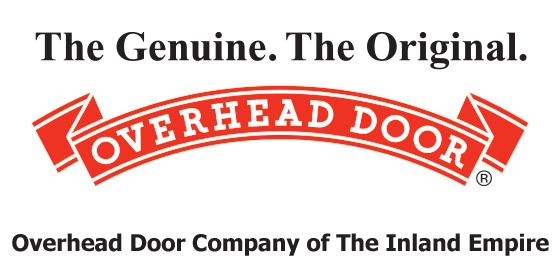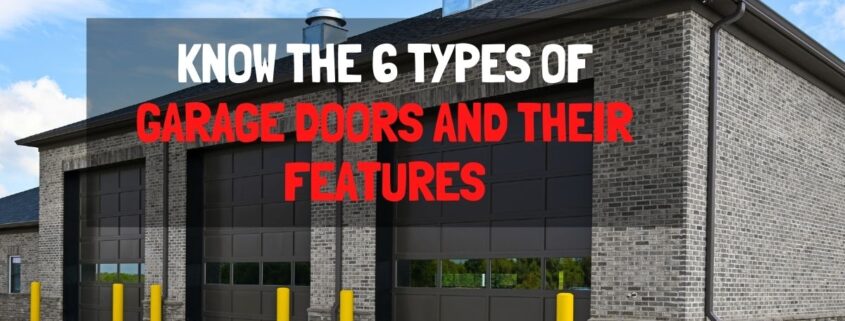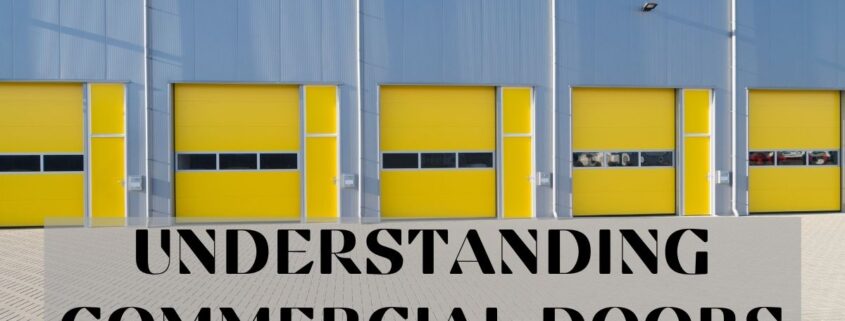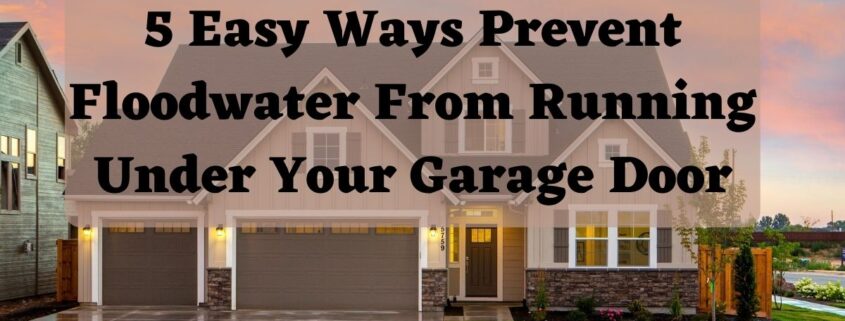Know the 6 Types of Garage Doors and Their Features
It is fantastic to have fancy front entry doors that certainly get all the attention of your guests. But actually, it’s the garage doors that could make your property’s curb appeal. Indeed, the first thing people see as they pass by or pull off is your garage door’s wide appearance. So, you will desire to select thoughtfully which type of garage door you want to get installed. As you read this article, you will learn about the most usual types of garage doors and their features and what to consider for your property improvement.
Types of Garage Doors
There are six most common types of garage doors to choose from. Also, you should decide which door material and color you want to use. And if there are particular choices like placing windows, insulation, and hardware you want to include.
1. Sectional Garage Doors
Sectional garage doors are the most well-known in the United States. This garage door style has panel sections connected with hinges that allow the door to bend and curve when it ascends or descends. The wheels at each side of the panels roll to run the door on a vertical track as it opens and closes.
Sectional doors are low maintenance and made mainly from steel. Aluminum and wood doors are also available. They can be insulated or non-insulated and customized according to your preferences.
2. Roll-up Garage Doors
Roll-up doors are the best option if you have limited ceiling space. They are made of steel sheets and do not move on a horizontal track system. Instead, the steel sheets roll up above the inside of the door opening.
Roll-up garage doors have two options: insulated and high-performance units. Insulated overhead doors are energy-efficient, which is better for the environment. High-performance doors offer both regular and insulated ones and can be installed without springs. These doors can endure heavy usage.
3. Slide-to-the-side Garage Doors
As the name implies, the slide-siding garage door slides horizontally to the side to open the entrance. It usually runs on a track. This type of door was initially used for garages with not enough headroom.
Slide-to-the-side garage doors do not need balancing springs. They also have a built-in retractable motor to automate its operation without requiring a ceiling-mounted mechanic.
4. Side-Hinged Garage Doors
These garage doors, also known as ‘swing’ garage doors, are a traditional design of overhead doors hinged at the sides that mostly open outwards. They look like barn doors and are generally made of timber. Commercial-type steel doors are available, too.
Recently, there has been more demand for these traditional doors, particularly if your garage has limited headroom. You may operate side-hinged garage doors with appropriate conversion arms.
5. Tilt-Up or Up-and-Over Canopy Garage Doors
Canopy garage doors use a spring mechanism at the top, raising the door panel at the side and sticking out a third of the door to form a canopy. Property owners use this garage door as a single-solid piece up-and-over door and are the easiest to install.
6. Tilt-Up or Up-and-Over Retractable Garage Doors
Retractable garage doors open vertically by raising the single-piece door panel upwards. Differently from canopy frames, the retractable type opens on horizontal tracks that move back into the garage. When it is entirely open, it lies parallel to the ceiling of your garage.
This door design needs more space than canopy models. Also, they are more complex to use than other styles and are usually more costly.
Seek Assistance with Overhead Door Company
If you are unsure which garage door type perfectly fits your business property, do not hesitate to communicate with a professional. Indeed, let Overhead Door Company answer your questions.
Our company has a team of highly-skilled specialists and offers the most efficient services to meet our clients’ needs.
We are available 24/7. Get in touch with us today for more details about our garage door products and services.



